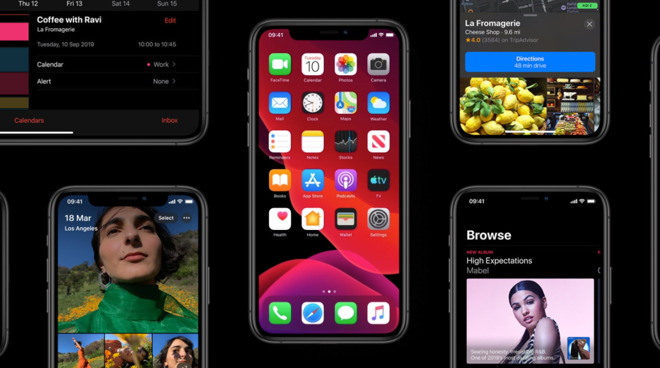Apple releases iOS 13.4, iPadOS 13.4, watchOS 6.2, tvOS 13.4, macOS 10.15.4
Apple has released iOS 13.4, iPadOS 13.4, tvOS 13.4, macOS 10.15.4 and watchOS 6.2 to the public, with the operating system updates introducing support for the Powerbeats 4 earphones along with a collection of bug fixes and improvements.

Released on Tuesday, the updates to iOS 13.4 and iPadOS 13.4 replace the previous version of the operating systems, iOS 13.3.1 and iPadOS 13.3.1, which were released on January 28. Users are able to manually request the update on their iPhone or iPad via the Settings app, by selecting General then Software Update, then the option to install the update if it is available to that device.
For users with automatic updates enabled on their device, a notification will display once the update has been downloaded, indicating the update is ready to be installed.
The updates are largely expected to include elements offered within the earlier beta releases, which involved Apple issuing five generations of builds to developers and members of its public beta-testing program. The most recent beta release was on March 10.
One of the reasons for the update releases is thought to be the launch and availability of the Powerbeats 4, a set of earphones from Beats announced on March 16. Apple typically issues software updates after major product launches, in order to ensure compatibility with the new hardware.
Earlier builds of iOS and iPadOS 13.4 included changes such as the return of iCloud folder sharing, a way for developers to sell macOS and iOS apps as a single purchase, new Memoji stickers, toolbar updates for Mail, keyboard shortcuts for Photos, Family Sharing tweaks in the TV app, and new CarPlay controls. References to a CarKey API were also found, suggesting a future use of an iPhone or Apple Watch as an NFC car key.

Released on Tuesday, the updates to iOS 13.4 and iPadOS 13.4 replace the previous version of the operating systems, iOS 13.3.1 and iPadOS 13.3.1, which were released on January 28. Users are able to manually request the update on their iPhone or iPad via the Settings app, by selecting General then Software Update, then the option to install the update if it is available to that device.
For users with automatic updates enabled on their device, a notification will display once the update has been downloaded, indicating the update is ready to be installed.
The updates are largely expected to include elements offered within the earlier beta releases, which involved Apple issuing five generations of builds to developers and members of its public beta-testing program. The most recent beta release was on March 10.
One of the reasons for the update releases is thought to be the launch and availability of the Powerbeats 4, a set of earphones from Beats announced on March 16. Apple typically issues software updates after major product launches, in order to ensure compatibility with the new hardware.
Earlier builds of iOS and iPadOS 13.4 included changes such as the return of iCloud folder sharing, a way for developers to sell macOS and iOS apps as a single purchase, new Memoji stickers, toolbar updates for Mail, keyboard shortcuts for Photos, Family Sharing tweaks in the TV app, and new CarPlay controls. References to a CarKey API were also found, suggesting a future use of an iPhone or Apple Watch as an NFC car key.

Comments
For everyone else, it’s fine.
With that said, iOS 13 is pretty good now.
All of my devices have updated successfully and without issue.
No update or fix yet for the AirPods issue noted earlier this year. I still show Firmware 2B588 for my AirPod Pro, which was the initial version when released. Some folks who updated in January have had issues and are stuck there. Anyone have any updates on this?
On my iPad Pro it says 13.4 (17E255), which is exactly the Release version shown on https://developer.apple.com/download/release/
Honest question... has any ISP anywhere said that their network actually *is* (or even might) suffer substantial or even noticeable congestion because of this? I know Netflix and Youtube etc. are cutting bandwidth, but that seems to be more in response to politicians' concerns - not exactly a group known for their technical savvy. Actual ISP reactions seem to be the opposite: Opening the flood gates by increasing speeds and waiving data caps.